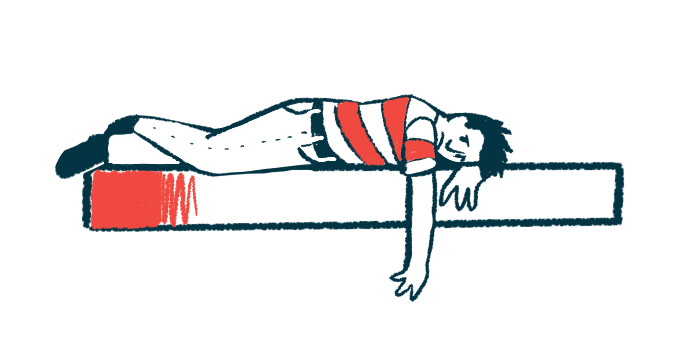Poor Sleep Quality Linked to COPD Flare-ups in US Study
Written by |

Poor sleep significantly increased the risk of disease flare-ups in current or former smokers with chronic obstructive pulmonary disease (COPD), a study found.
“Sleep has not been extensively studied as a modifier of COPD outcomes,” Marishka Brown, PhD, director of the National Heart, Lung, and Blood Institute’s (NHLBI) National Center on Sleep Disorders Research, said in a press release.
“This study adds to a growing knowledge base demonstrating the harmful effects of poor sleep on health in general but can be particularly damaging in people with devastating preexisting conditions, such as COPD,” Brown said.
The study, “Risk of COPD exacerbation is increased by poor sleep quality and modified by social adversity,” was published in Sleep.
COPD is a progressive lung condition marked by significant breathing difficulties. COPD flare-ups, or acute bouts of symptom worsening, can occur suddenly and last for days to weeks. Various factors can trigger these flare-ups, including allergies, viruses, or bacteria.
Because COPD patients often experience poor sleep, researchers in the U.S. examined sleep and COPD flare-ups in a subgroup of participants in the Subpopulations and Intermediate Outcome Measures in COPD Study, or SPIROMICS SPIROMICS (NCT01969344), to see if sleep disruptions may be a trigger for COPD exacerbations.
SPIROMICS is a longitudinal study funded by NHLBI and the COPD Foundation to understand COPD subpopulations, outcomes, and biomarkers.
The study included 1,647 COPD patients, all of whom were current or former smokers. Participants reported their sleep quality through the Pittsburgh Sleep Quality Index (PSQI) questionnaire, which was examined to determine their sleep score. These scores were then compared with the number of COPD flare-ups occurring over three years.
Results showed that, in general, poor sleep quality was associated with a greater number of flare-ups. Those with poor sleep had a 25% greater chance of having a flare-up within the next year compared with those who had the best possible sleep. Further, those with the worst possible sleep had a 95% increased risk of having a flare-up compared with those with the best possible sleep.
The effects of poor sleep on COPD exacerbations were not as significant among those living in poorer quality neighborhoods, analyses showed.
The findings suggest poor sleep may be a significant contributor to worse COPD outcomes. In fact, poor sleep appeared to be an even more significant predictor of flare-ups than smoking history, despite smoking being the leading cause of COPD in developed countries.
“Among those who already have COPD, knowing how they sleep at night will tell me much more about their risk of a flare-up than knowing whether they smoked for 40 versus 60 years,” Aaron Baugh, MD, a practicing pulmonologist and the study’s first author, said. “That is very surprising and is not necessarily what I expected going into this study. Smoking is such a central process to COPD that I would have predicted it would be the more important predictor in the case of exacerbations.”
Baugh is also a clinical fellow at the University of California San Francisco Medical School.
Since previous studies have showed that Black Americans have worse sleep quality than people of other races or ethnicities, these findings may be particularly relevant for Black COPD patients, Baugh noted. The findings could, in part, explain why COPD outcomes tend to be worse among Black Americans, he said.
“Our work provides a strong rationale into paying more attention to sleep than we have in the past, from both a clinical and research perspective,” Baugh said.
“While we now know that sleep quality can predict future exacerbations, we don’t know whether improving sleep quality will yield direct improvements in COPD outcomes,” Baugh said, noting that he encourages future studies that can look at the impact of individual or community interventions.





